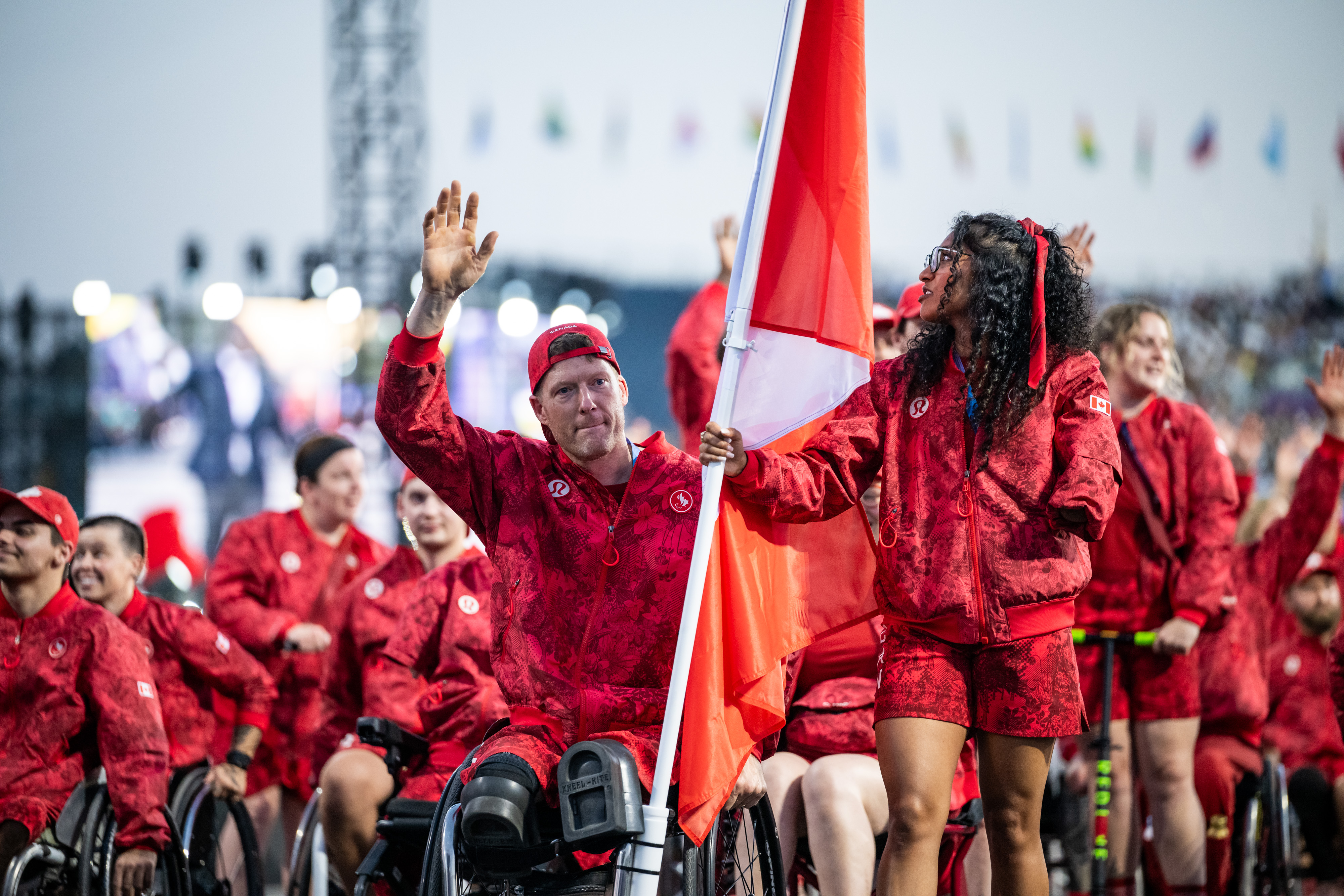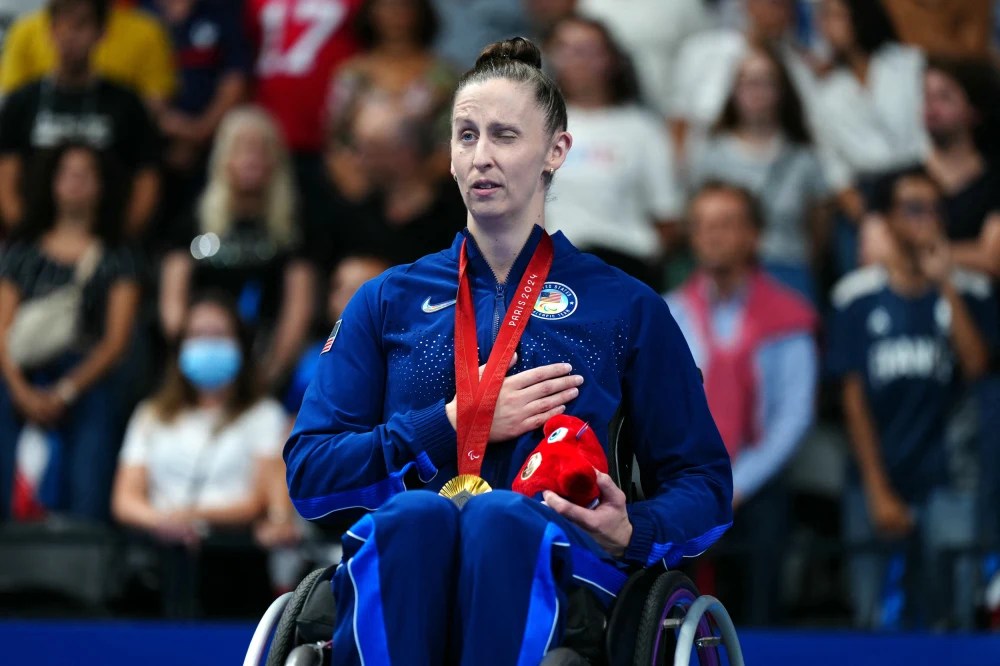When his round of 16 matchup came down to a one-arrow shootoff, Matt Stutzman could feel the adrenaline taking hold.
For most athletes, it would be impossible to replicate these circumstances: one shot of an arrow to decide your fate, a chance at a Paralympic medal hanging in the balance.
But for Stutzman, otherwise known as the "Armless Archer," this feeling was a familiar one. He knew that simulating this sensation would be an important part of his Paralympic training, and so he figured out a way to do exactly that.
Of course, figuring things out is something that he's been doing for years.
Get Tri-state area news delivered to your inbox. Sign up for NBC New York's News Headlines newsletter.
Born without arms, Stutzman is a far cry from your prototypical archer. The first time he ever did a Google search for "how to teach an armless man to shoot a bow," there were no results. He had to come up with everything on his own, including the technique and the equipment he uses.
Stutzman is adept at using his legs and feet for various activities. For archery, he uses his feet to load the arrows and a special release to shoot them.
In Paris, the 41-year-old was competing at his fourth Paralympic Games in the men's compound event. His previous experiences showed him the importance of training under conditions that could reproduce the intense pressure of competing on the world stage.
"The only time that you really get adrenaline is at either the Paralympics or the world championships because it's the only tournament in the world where you shoot in front of [thousands of] people," Stutzman told NBCOlympics.com this week. "If you're not at home practicing how to handle adrenaline, and you're just in your backyard shooting, it's not going to actually help you out, because when you get to the Games, you're going to have adrenaline, and it's going to feel completely different than at home in the practice range."
In the leadup to the Paralympics, Stutzman spent time jumping out of planes and driving race cars — activities which dramatically elevated his heart rate. He would then practice shooting his bow before the adrenaline wore off.
On one occasion — much to the dismay of his wife — he created an elaborate setup which involved three of his prized possessions: his house, his race car, and his London 2012 Paralympic silver medal. Stutzman needed to shoot an arrow through his home and his race car to hit a target which had his medal hanging from it.
"If I don't make this one shot count, I'm either hitting my house, I'm hitting my race car, or I'm hitting my Paralympic medal that I can't replace," Stutzman recalled. "What that did was it created a shootoff pressure situation."
Fortunately, Stutzman made that shot. He also made the shot during the Paris Paralympics.
That round of 16 shootoff was against Finland's Jere Forsberg, the man who beat Stutzman for gold in 2012 and left him with that silver medal. Forsberg's shot was 19.7 millimeters off the target.
When it was Stutzman's turn to shoot, he remembers feeling relaxed and smiling before the arrow even hit the target. The result was a dead-center bullseye and a spot in the quarterfinals.
"I started to feel a little bit of the excitement and the pressure of like, I really got to make the shot count, or else I'm going to go home," he recalled. "I was totally like, Ah, I just felt this pressure not that long ago. I know how to handle it. And something just said, You're fine."
Then Stutzman narrowly won his quarterfinal match, 143-142, against Great Britain's Nathan MacQueen despite uncovering an equipment issue — his sight had come loose and was flopping around — midway through the contest. He had to wait until after the match to fix it, but his performance immediately improved.
Stutzman and his semifinal opponent, reigning gold medalist He Zihao of China, both tied the Paralympic record by shooting 148 out of a possible 150 points. Once again, Stutzman found himself in a shootoff, and once again, he prevailed.
By this point, Stutzman had another thing working in his favor — the "Armless Archer" had officially won the crowd's support in Paris.
"I love shooting in front of people, and I knew if I got the crowd on my side, I would shoot even better," he said. "It was my game plan from Day 1 to win over France, and by the end, I had all of France on my side, so when they started cheering for me, it felt like a home match. It felt like I was in the United States, and I shoot my best when I feel at home."
In the final against China's Ai Xinliang, Stutzman shot even better. He scored 149 points — just one point away from a perfect score — to outduel his opponent and win gold.
But the gold medal wasn't what was on Stutzman's mind. After he came off the stage, the first thing he said to his coach was about how excited he was to set a new Paralympic record and come so close to a perfect score.
"You also won," his coach reminded him. "You know that, right?"
"For me, the gold medal was just the icing on the cake," Stutzman said. "It wasn't my priority and my focus. I don't really celebrate a lot. I enjoy the moment with my family, and then I get ready to move on for the next thing that I'm about to do."
Stutzman admits, however, that this gold medal "has been a long time coming."
Since he first taught himself how to shoot a bow, he has continued to refine his signature technique. Over the years, the main change he's made has been in how he releases the arrow.
Initially Stutzman bit the string with his teeth, but he decided that was too impractical. ("I like my teeth too much," he says.) He tried using various versions of a release that was activated by his chin — at his first Paralympics in 2012, he activated it by moving his jaw backward; at his next Games in 2016, he did so by moving his chin forward instead.
Currently Stutzman is using a prototype release. He now applies pressure with his back to activate the trigger and shoot the arrow.
All the work that went into figuring that technique out was more than just for fun. It was also something the transformed his entire life.
"I went from a guy who was just trying to figure out how to provide for his family — put clothes on their backs, shoes on their feet, food on the table — to being able to have the ability to do all that stuff while competing," he said. "I feel very lucky to have the life that I have. I don't look at it as work."
While Stutzman still plans to be involved in para archery — there are several more armless archers now following in his footsteps, and he tries to serve as a mentor to all of them — he expects the Paris Games to be his final Paralympic competition. And if that's the case, he can't think of a better way to leave the competition side of the sport behind.
"[I'm] 99% sure this is my last Games. So, my first Games was a silver, my last Games was a gold. And the storyline that made this all happen was pretty much perfect shooting, a Paralympic record during those matches, as well as a one-arrow shootoff that is the most perfect bullseye supposedly ever happening in competition. I don't think you can really top it."




